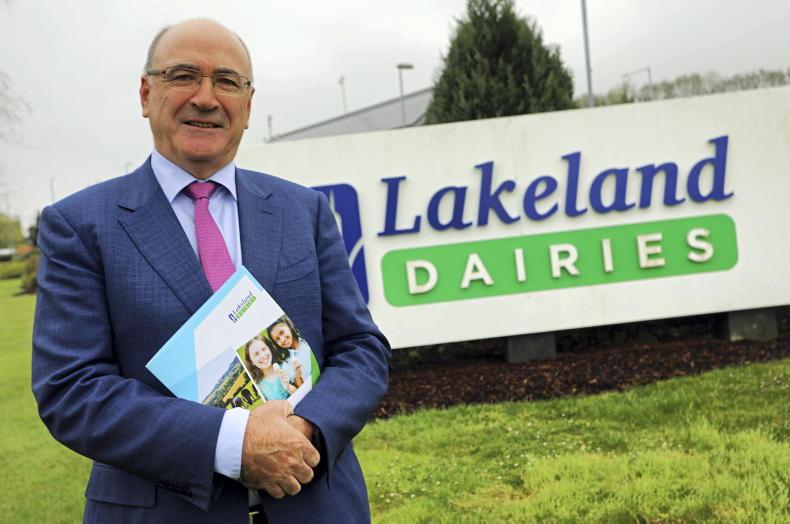Lakeland Dairies has withdrawn its peak milk supply management scheme for new milk, which had been due to start next year for the 2023 season and onwards.
Also, at the final board meeting for outgoing CEO Michael Hanley this week, it was decided to pay out a 13th payment on all 2022 milk supply to the tune of 0.6c/l. This will mean an unexpected €3,000 windfall for the average supplier delivering 500,000l.
Lakeland said environmental legislation and continually evolving guidance related to greenhouse gas emissions, water quality, fertiliser use and biodiversity have gathered pace since the peak milk management scheme was announced earlier this year.
“This includes changes to the nitrates derogation, with new banding rules designed to reduce emissions based on historic milk yields, and which will affect stocking rates on farms and the rate of growth in milk production from 1 January 2023,” it said.
Appropriate
Hanley said the co-op “believes it is appropriate to withdraw the implementation of the peak milk scheme indefinitely”.
“With continuing developments and ongoing investments and enhancements in extra capacity taking place across all our facilities, higher than anticipated levels of milk processing were achieved in 2022 and further capacity will come on stream in 2023 and beyond.
“Taking these new circumstances into account, Lakeland believes it is in the interests of its milk suppliers to withdraw the scheme. All existing milk procurement arrangements will therefore remain unchanged and will continue as they are now and into 2023 and onwards.”
Lakeland Dairies also confirmed that it will continue to welcome new entrants to dairying on a continuing basis, north and south.
‘Correct decision’
Meanwhile, the Irish Farmers Association (IFA) has described the withdrawal of Lakelands’ milk supply agreement as the “correct decision”.
IFA dairy chair Stephen Arthur said it had been “very disappointing to see such a scheme proposed in the first instance”.
“[The] IFA highlighted this on a number of occasions to both Lakeland Dairies management and the board. It has to be acknowledged that Lakelands took these concerns on board and abandoned the proposal,” he said.
Arthur warned that if the agreement had progressed, it would have had an “adverse impact on many family farms supplying Lakelands who may have long-term plans in place to make their businesses more viable”.
“With all the current uncertainty in dairy farming, such as with the proposed changes to nitrates and the Food Vision report, dairy farmers need some certainty and must be able to depend on their processors to support them,” he said.







 This is a subscriber-only article
This is a subscriber-only article










SHARING OPTIONS: